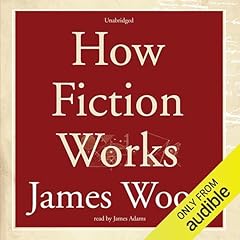
First We Read, Then We Write: Emerson on the Creative Process
No se pudo agregar al carrito
Add to Cart failed.
Error al Agregar a Lista de Deseos.
Error al eliminar de la lista de deseos.
Error al añadir a tu biblioteca
Error al seguir el podcast
Error al dejar de seguir el podcast
Obtén 3 meses por US$0.99 al mes
 Exclusivo para miembros Prime: ¿Nuevo en Audible? Obtén 2 audiolibros gratis con tu prueba.
Exclusivo para miembros Prime: ¿Nuevo en Audible? Obtén 2 audiolibros gratis con tu prueba.
Compra ahora por $12.59
-
Narrado por:
-
Gary D. MacFadden
Writing was the central passion of Emerson's life. While his thoughts on the craft are well developed in "The Poet", "The American Scholar", Nature, "Goethe", and "Persian Poetry", less well known are the many pages in his private journals devoted to the relationship between writing and reading. Here, for the first time, is the Concord Sage's energetic, exuberant, and unconventional advice on the idea of writing, focused and distilled by the preeminent Emerson biographer at work today.
Emerson advised that "the way to write is to throw your body at the mark when your arrows are spent." First We Read, Then We Write contains numerous such surprises - from "every word we speak is million-faced" to "talent alone cannot make a writer" - but it is no mere collection of aphorisms and exhortations. Instead, in Robert Richardson's hands, the biographical and historical context in which Emerson worked becomes clear. Emerson's advice grew from his personal experience; in practically every moment of his adult life he was either preparing to write, trying to write, or writing. Richardson shows us an Emerson who is no granite bust, but instead is a fully fleshed, creative person disarmingly willing to confront his own failures.
Emerson urges his readers to try anything - strategies, tricks, makeshifts - speaking not only of the nuts and bolts of writing but also of the grain and sinew of his determination. Whether a writer by trade or a novice, every reader will find something to treasure in this volume. Fearlessly wrestling with "the birthing stage of art", Emerson's counsel on being a reader and writer will be read and reread for years to come.
©2009 Robert D. Richardson (P)2012 Redwood AudiobooksLos oyentes también disfrutaron:




















Reseñas de la Crítica
Las personas que vieron esto también vieron:

Thanks
Kelly Miers
A Good Way to learn about Emerson!!!!!
Se ha producido un error. Vuelve a intentarlo dentro de unos minutos.
What made the experience of listening to First We Read, Then We Write: Emerson on the Creative Process the most enjoyable?
I love everything about Emerson except how difficult it is to read Emerson. This author has done a wonderful job of sorting through Emerson's journals and letters, reducing them to their most important ideas, and conveying them in a coherent and meaningful way.What other book might you compare First We Read, Then We Write: Emerson on the Creative Process to and why?
For some reason the tone of the writing reminds me a bit of C.S. Lewis - conversational, yet sophisticated.Which scene was your favorite?
I really enjoyed the part about how language and words should be connected to ideas and reality, and how the words lose their meaning when they no longer maintain that tangible connection.Was there a moment in the book that particularly moved you?
I was particularly comforted, as a writer, by the realization that Emerson spent literally years just reading and journaling before he ever wrote anything he considered publishable. Also, I enjoyed the description of Emerson as a reader, and was delighted to discover that he skimmed many books and read only the parts he found valuable.Any additional comments?
I highly recommend this book to anyone who enjoys reading Emerson or other transcendentalist authors. It is well-written and full of good advice for writers.A treat for any writer or Emerson fan
Se ha producido un error. Vuelve a intentarlo dentro de unos minutos.
Greatness We Must Learn From
Se ha producido un error. Vuelve a intentarlo dentro de unos minutos.


